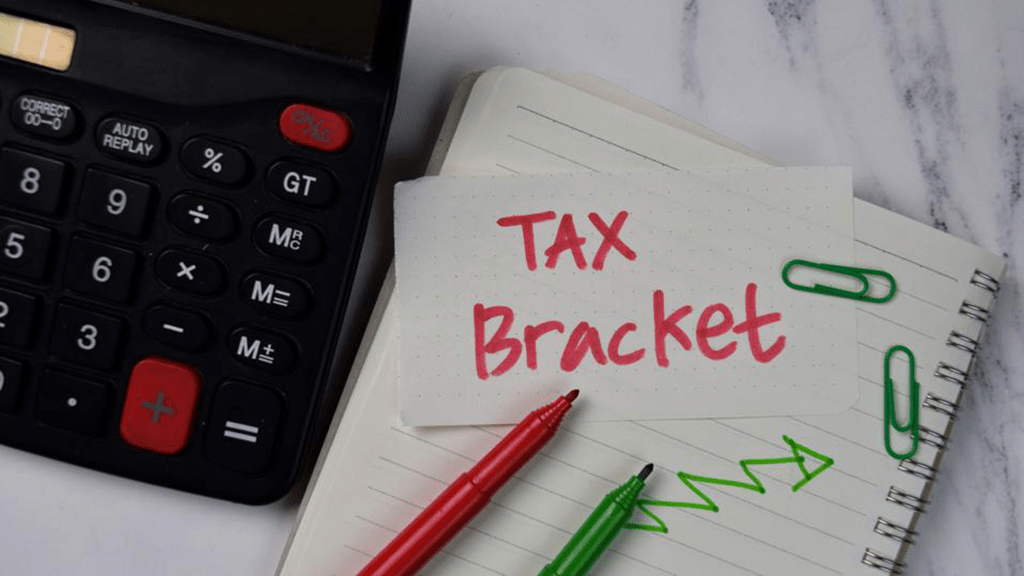Understanding Malta’s Tax Brackets

If you are planning to work or do business in Malta, it is important to understand the tax system in the country. One of the key components of Malta’s tax system is its tax brackets, which determine the amount of tax you will pay based on your income. In this article, we will take a closer look at Malta’s tax brackets and how they work.
What are tax brackets?
Tax brackets are a way of dividing income into different ranges or tiers, each of which is subject to a different tax rate. The purpose of tax brackets is to ensure that people who earn more pay a higher percentage of their income in taxes, while those who earn less pay a lower percentage.
How do tax brackets work in Malta?
Malta’s tax system is based on progressive taxation, which means that the more you earn, the higher the percentage of tax you pay. Malta’s tax brackets are divided into income ranges, and each range has a different tax rate. When you earn income in Malta, you will be taxed based on the tax bracket that your income falls into.
What are the different tax brackets in Malta?
There are five tax brackets in Malta, based on your annual income:
- First tax bracket: up to €9,100
- Second tax bracket: €9,101 to €14,500
- Third tax bracket: €14,501 to €19,500
- Fourth tax bracket: €19,501 to €60,000
- Fifth tax bracket: over €60,000
What is the tax rate for each tax bracket in Malta?
The tax rate for each tax bracket in Malta is as follows:
- First tax bracket: 0%
- Second tax bracket: 15%
- Third tax bracket: 25%
- Fourth tax bracket: 35%
- Fifth tax bracket: 35%
It is worth noting that Malta has a tax refund system for individuals who fall into the first three tax brackets, which can effectively reduce their tax rate to 0%, 5%, or 15%, depending on their circumstances.
How can you calculate your tax liability in Malta?
To calculate your tax liability in Malta, you need to know your annual income and the tax bracket that your income falls into. Once you know your tax bracket, you can use the tax rates above to calculate your tax liability. For example, if your annual income is €30,000, your tax liability would be:
- First tax bracket: €0
- Second tax bracket: €825 (15% of €5,400)
- Third tax bracket: €2,000 (25% of €8,000)
- Fourth tax bracket: €3,500 (35% of €10,000)
- Fifth tax bracket: €0 (income above €60,000 is not subject to additional tax)
Total tax liability: €6,325
Are there any tax deductions or credits available in Malta?
Yes, there are several tax deductions and credits available in Malta that can help you reduce your tax liability. Some of the most common deductions and credits include:
- Personal tax credit: All individuals in Malta are entitled to a personal tax credit, which is currently set at €375.
- Single-parent tax credit: Single parents are entitled to an additional tax credit of €250.
- Education tax credit: Individuals who have paid for their own or their children’s education can claim a tax credit of up to €2,000.
- Donations tax credit: Individuals who make charitable donations can claim a tax credit of up to 50% of the amount donated.
- Home loan interest deduction: Individuals who have taken out a home loan can deduct the interest they pay on the loan from their taxable income.
How does Malta’s tax system compare to other countries?
Malta’s tax system is generally considered to be competitive compared to other European countries. The country has a relatively low corporate tax rate of 35%, and a progressive income tax system that allows individuals to benefit from lower tax rates if their income falls into the first three tax brackets.
What are the benefits of Malta’s tax system?
There are several benefits to Malta’s tax system, including:
- Competitive tax rates: Malta’s tax rates are generally lower than those in many other European countries, making it an attractive destination for businesses and individuals.
- Tax refunds: Malta’s tax refund system allows individuals in the first three tax brackets to effectively reduce their tax rate, making it more affordable to live and work in the country.
- Tax deductions and credits: Malta offers a range of tax deductions and credits that can help individuals and businesses reduce their tax liability.
- Access to the EU: As a member of the European Union, Malta offers businesses and individuals access to the wider European market, as well as the benefits of EU membership.
What are the drawbacks of Malta’s tax system?
While Malta’s tax system has many benefits, there are also some potential drawbacks to be aware of, including:
- High tax rates for high earners: Individuals in the fourth and fifth tax brackets in Malta are subject to relatively high tax rates, which can make it less attractive for high earners.
- Complex tax rules: Malta’s tax system can be complex and difficult to navigate, particularly for individuals who are not familiar with the country’s tax laws.
- Limited tax treaty network: Malta has a relatively limited tax treaty network compared to other European countries, which can make it more difficult to avoid double taxation.
How can you optimize your tax situation in Malta?
If you are looking to optimize your tax situation in Malta, there are several steps you can take, including:
- Understanding your tax obligations: Make sure you understand the tax laws in Malta and your obligations as a taxpayer.
- Taking advantage of deductions and credits: Be sure to take advantage of any tax deductions and credits that you are eligible for in Malta.
- Planning your income: If possible, try to structure your income so that it falls into a lower tax bracket in Malta.
- Seeking professional advice: Consider working with a tax professional who can help you navigate Malta’s tax system and identify opportunities to minimize your tax liability.
What are some common mistakes to avoid when dealing with Malta’s tax system?
Some common mistakes to avoid when dealing with Malta’s tax system include:
- Failing to register for tax: Make sure you register for tax in Malta if you are required to do so.
- Not filing tax returns on time: Be sure to file your tax returns on time to avoid penalties and interest charges.
- Ignoring deductions and credits: Don’t overlook any deductions or credits that you may be eligible for in Malta.
- Failing to keep proper records: Keep accurate records of your income and expenses to make it easier to file your tax returns and claim deductions.
How can you get professional help with your tax matters in Malta?
If you need help with your tax matters in Malta, there are several options available, including:
- Hiring a tax professional: Consider working with a tax professional who has experience in Malta’s tax system and can help you navigate the country’s tax laws.
- Contacting the Malta Inland Revenue Department: The Malta Inland Revenue Department can provide information and assistance on tax matters in Malta.
- Seeking advice from your employer: If you are employed in Malta, your employer may be able to provide guidance on tax matters and help you understand your tax obligations.
What are the latest updates and changes to Malta’s tax system?
Malta’s tax system is subject to change, and it is important to stay up-to-date on the latest updates and changes. Some recent updates and changes to Malta’s tax system include:
- Reduction in tax brackets: As of 2022, Malta’s tax system will be simplified, with only three tax brackets instead of five.
- Introduction of a wealth tax: The Maltese government has proposed the introduction of a wealth tax on individuals with a net worth of over €10 million.
- Increased scrutiny of tax arrangements: The Maltese government has increased its scrutiny of tax arrangements in the country, particularly those involving international companies.
What are some frequently asked questions about Malta’s tax system?
What is the deadline for filing tax returns in Malta?
The deadline for filing tax returns in Malta is typically the end of June each year.
Can I claim tax deductions for expenses related to my business?
Yes, you may be able to claim tax deductions for expenses related to your business, such as rent, utilities, and office supplies.
What is the penalty for late payment of taxes in Malta?
The penalty for late payment of taxes in Malta is typically 0.5% per month, up to a maximum of 5%.
Do I need to pay tax on income earned outside of Malta?
If you are a resident of Malta, you will typically be subject to tax on your worldwide income. However, there may be exceptions for certain types of income or situations.
How can I check my tax status in Malta?
You can check your tax status in Malta by contacting the Malta Inland Revenue Department or working with a tax professional.
Conclusion
Understanding Malta’s tax system is an important part of living and working in the country. By familiarizing yourself with Malta’s tax brackets and rules, as well as taking advantage of any deductions and credits that you are eligible for, you can minimize your tax liability and optimize your financial situation. If you need help with your tax matters in Malta, consider working with a tax professional who can provide guidance and advice tailored to your specific situation.
Recommended Posts

Legal Nuances of Operating an Online Casino
May 17, 2024

Overview of Business Finance in Malta
May 17, 2024

Enhancing Payment Security with Blockchain
May 17, 2024




